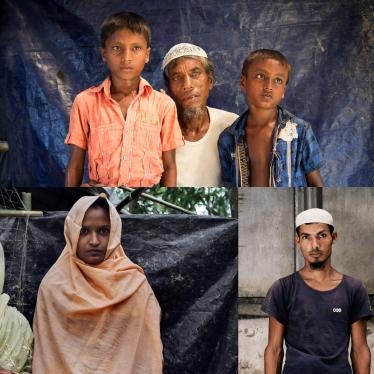(New York) - The Sri Lankan government's admission that it has been using heavy weapons in an area crowded with displaced civilians underscores the need for an international commission of inquiry into violations of the laws of war by government forces and the Liberation Tigers of Tamil Eelam (LTTE), Human Rights Watch said today.
The Sri Lankan Presidential Secretariat conceded today that it had been using heavy weapons in the recent fighting, despite earlier statements that it had ceased their use. The statement said: "Our security forces have been instructed to end the use of heavy caliber guns, combat aircraft and aerial weapons which could cause civilian casualties."
"By finally admitting it has been using heavy weapons all along, the Sri Lanka government has shed light onto its official deception as well as its brutal military tactics," said Brad Adams, Asia director at Human Rights Watch. "The UN Security Council should stop burying its head in the sand on Sri Lanka and urgently create an international commission of inquiry to look at abuses by both sides."
For months, the Sri Lankan government has denied that its operations against the LTTE were killing civilians and ignored appeals by the United Nations and many other members of the international community to stop attacks in the government-declared "no-fire zone," where it had encouraged civilians to take shelter. For example, on April 23, Defense Secretary Gotabhaya Rajapaksa told the BBC: "We are going very slowly towards the south of the no-fire zone to rescue the remaining civilians. Our troops are not using heavy fire power, they are using only guns and personal weapons."
Numerous accounts by witnesses as well as photographs and satellite imagery have demonstrated the continuing use of heavy artillery and aerial bombardment in the fighting between government forces and the LTTE. According to the UN, an estimated 6,400 people have been killed and more than 13,000 wounded in the conflict area since January 2009.
The UN estimates that more than 50,000 civilians remain trapped. The LTTE reportedly continues to prevent the escape of many. The extreme vulnerability of these civilians is compounded by severe shortages of food, water, and medical supplies. In addition to its indiscriminate attacks on the "no-fire zone," the government's continued refusal to allow adequate humanitarian personnel and delivery of essential relief supplies has denied civilians critical assistance. Its ban on allowing impartial outside observers, including journalists and human rights monitors, into the area has obstructed another important aspect of civilian protection.
Human Rights Watch said that many of the internally displaced persons now entering government-controlled areas had not eaten for days. They continue to face shortages of food, water, shelter, and sanitation as they await government screening and registration before being transferred and detained in closed government detention camps, which the government calls "welfare centers."
Human Rights Watch urged the foreign ministers of the United Kingdom, France, and Sweden, who are bound for Colombo on April 29, 2009, to make the government's accountability for the protection and welfare of displaced civilians their top priority.
"The visiting foreign ministers from the UK, France, and Sweden may be the last hope of the remaining trapped civilians," said Adams. "They should make it clear to Sri Lanka's leaders that they will be held accountable for attacks on civilians or denying them access to humanitarian aid."






